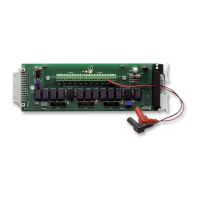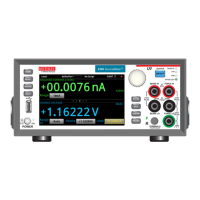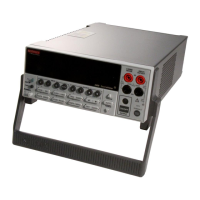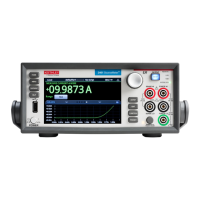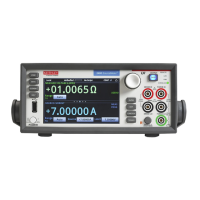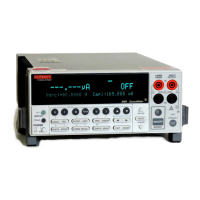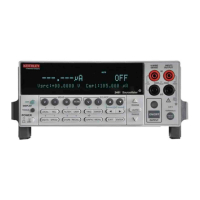Interactive SourceMeter® Instrument Reference Manual Section 7:
Introduction to TSP operation
2450-901-01 Rev. B/September 2013 7-27
String library functions
This library provides generic functions for string manipulation, such as finding and extracting
substrings. When indexing a string in Lua, the first character is at position 1 (not 0, as in ANSI C).
Indices may be negative and are interpreted as indexing backward from the end of the string. Thus,
the last character is at position −1, and so on.
String library functions
Function Description
string.byte(s, i)
s
i
j
Returns the internal numeric codes of the characters s[i],
s[i+1], ···, s[j]. The default value for i is 1; the default
Receives zero or more integers. Returns a string with length equal
to the number of arguments, in which each character has the
internal numeric code equal to its corresponding argument.
formatstring,
...)
Returns a formatted version of its variable number of arguments
following the description given in its first argument, which must be
a string. The format string follows the same rules as the printf
family of standard C functions. The only differences are that the
modifiers *, l, L, n, p, and h are not supported and there is an
extra option, q. The q option formats a string in a form suitable to
be safely read back by the Lua interpreter; the string is written
between double quotes, and all double quotes, newlines,
embedded zeros, and backslashes in the string are correctly
escaped when written.
For example, the call:
string.format('%q', 'a string with "quotes" and
\n new line')
will produce the string:
"a string with \"quotes\" and \
new line"
The options c, d, E, e, f, g, G, i, o, u, X, and x
as argument. q and s expect a string. This function does not
accept string values containing embedded zeros, except as
arguments to the q option.
s
Receives a string and returns its length. The empty string "" has
length 0. Embedded zeros are counted, so "a\000bc\000" has
Receives a string and returns a copy of this string with all
uppercase letters changed to lowercase. All other characters are
Returns a string that is the concatenation of n copies of the
string s.
string.sub(s, i, j)
Returns the substring of s that starts at i and continues until j; i
and j can be negative. If j is absent, it is assumed to be equal to
-1 (which is the same as the string length). In particular, the call
string.sub(s, 1, j) returns a prefix of s with length j, and
s
i
returns a suffix of s with length i.
Receives a string and returns a copy of this string with all
lowercase letters changed to uppercase. All other characters are
left unchanged.
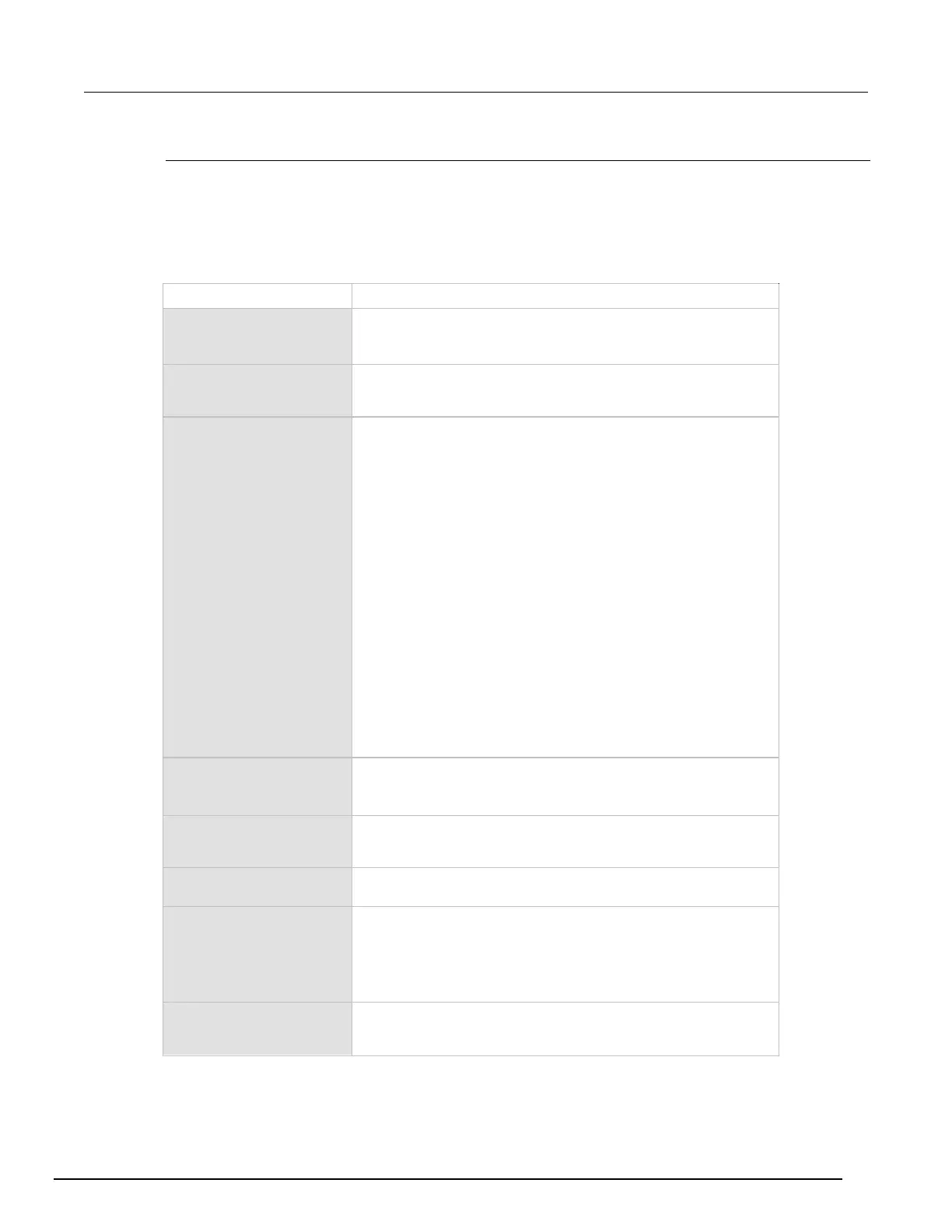